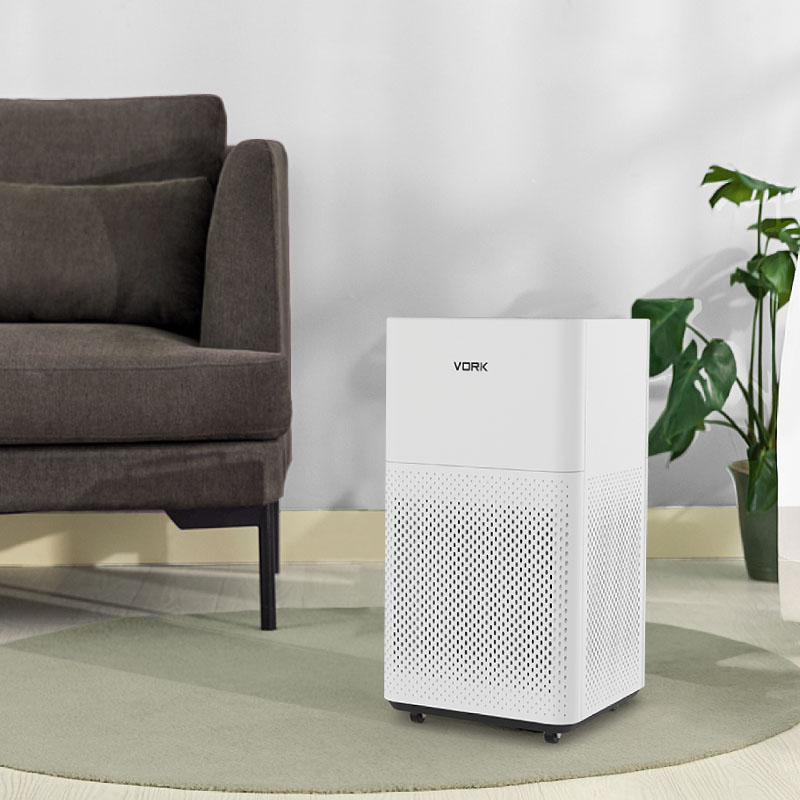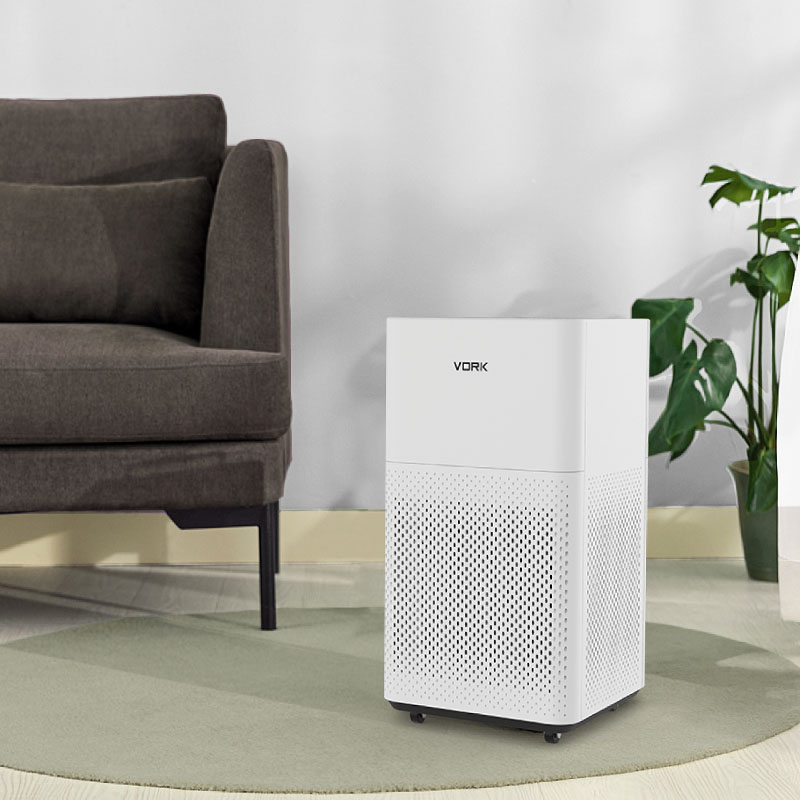-
Call at +86 -15359211529
-
Email sandy@vorktech.com
1. Air purifiers are a great way to improve the air quality in your home or office. They work by removing pollutants and other particles from the air, which can help to improve your health and overall environment
Your indoor air is often more polluted than the air outside. Since we spend most of our time indoors, our exposure to poor indoor air quality puts us at risk for a number of ailments.
An air purifier or air cleaner is a device which removes contaminants from the air in a room to improve indoor air quality. These devices are commonly marketed as being beneficial to allergy sufferers and asthmatics, and at reducing or eliminating second-hand tobacco smoke.
Types of air pollutants, can be removed by air purifier
· Dust and dust mites
· Pet dander and hair
· Mold and Plant spores
· Pollen
· Bacteria
· Tobacco and wood smoke, and its smell
· Household odours from cooking, pets and chemical cleaners
· Volatile Organic Compound
An air purifier is a device using a HEPA filter or activated carbon filter, some times, 2-in-1 or 3-in-1 filter, to convert the dirty air into clean air.

2. How long should we replace new filter. Below are 3 useful insight based on actual using.
1. Check the manual - Most air purifiers come with a manual that will provide detailed instructions on how to change the filter.
2. The color of the filter is an unreliable indicator of when to change the filter.
3. HEPAs actually get better at capturing particles as they age.
4. Air speed is the only reliable way to test if your HEPA needs to be changed.
5. Check for leaks - Once you've cleaned and replaced all of the filters, it's important to check for any leaks. This will help you identify and correct any problems quickly and efficiently.

3. How does air purifier work.
Air pollution is a significant factor plaguing the planet. Outdoor air gets contaminated for a whole host of reasons citing progress and developments as convenient caveats.
Air filters in the Air purifiers utilize fine sieves that filter particles from circulating air. Keep in mind, the finer the sieve used, the smaller the particles it traps and makes it more efficient. High Efficiency Particulate Air (HEPA) filters, known to be the benchmark in capturing particulate matter trap 99.97% of airborne particles larger than 0.3 microns.
The naked eye cannot visually see smaller than 10 microns, so pollutants like bacteria and viruses escape detection. ACs filters also only capture particles sized 10.0 microns or bigger. HEPA filters remove smaller allergens like dust, smoke, chemicals, asbestos, pollen, and pet dander. The more times the air passes through the HEPA filter, the cleaner the air becomes.
4. Do we really need an air purifier?
Nothing more to think about purifiers but to know about the air quality which you are going to inhale/breathing, are polluted with lots of dusty particles which are not good for healthy lifestyle. That is why a air purifier needed to clean/purified the air inside of yours room…
Please feel free to contact me if you need any questions.